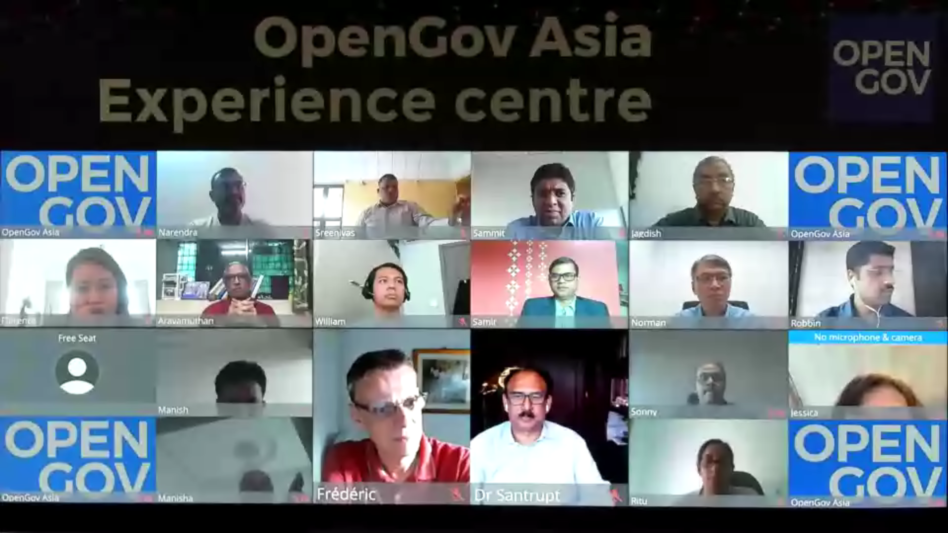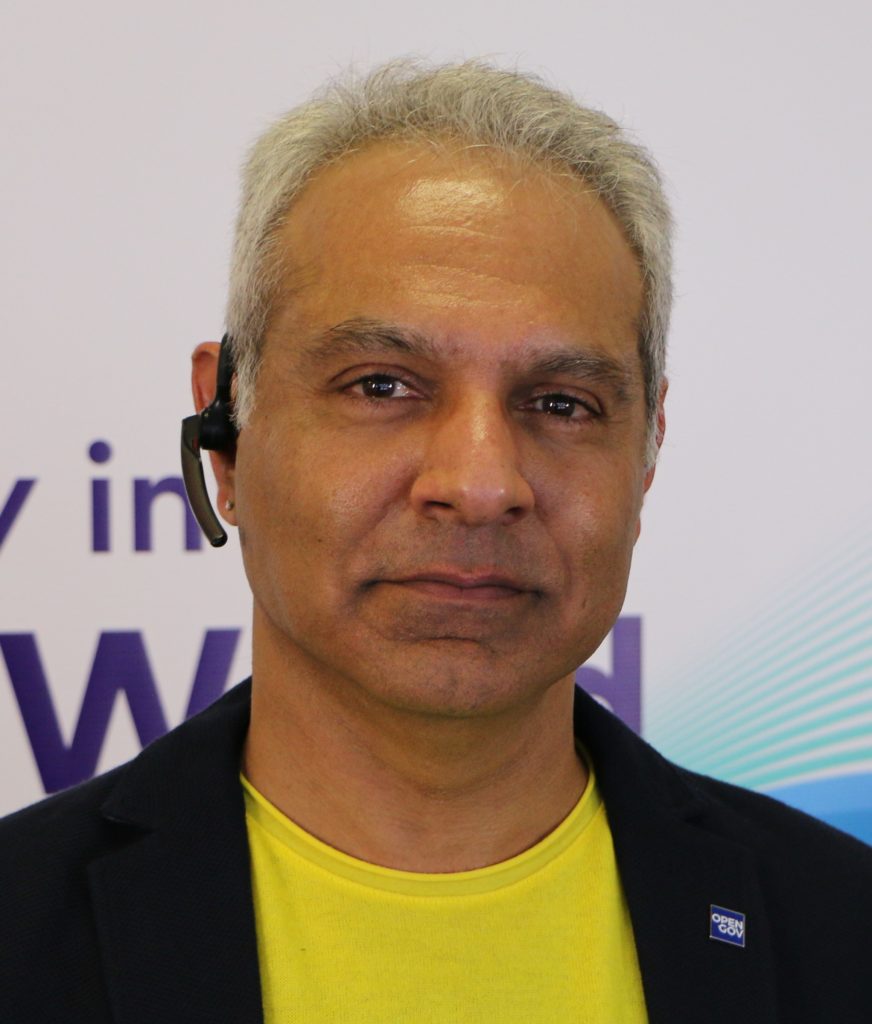
Before December 2019, calamities and disasters were overcome as individual nations.
Be it the wildfires in Australia, floods in India and Malaysia or typhoons in the Philippines, we were thought we were prepared and equipped to deal with them one at a time.
But there was a harsh reality check when the world was hit by the global pandemic at the end of last year. The world was caught off guard in a way that nobody could imagine; a calamity of such magnitude that impacted every little aspect of everyone’s life.
OpenGov Asia dedicated its latest Virtual Breakfast Insight on 4th August 2020 to help enterprises be better prepared to continue their business operations in the world of Volatility, Uncertainty, Complexity and Ambiguity (VUCA).
The audience comprised of an well-experienced group of digital executives from diverse industries like retail, manufacturing, FSI, IT, etc. from India and Hong Kong.

The session was opened by Mohit Sagar, Group Managing Director, and Editor-in-Chief, OpenGov Asia.
Mohit pointed out that a lack of planning and experience to deal with a global pandemic like COVID- 19 caused a lot of panic among governments and citizens all over the world.
Unlike the siloed approach to tackle critical events in the past, the pandemic required a strong unified effort from everyone – governments, organisations and individuals.
Agencies and enterprises assumed that the business continuity plans that they already had in place would be enough to help them stay afloat.
However, the new normal is forcing businesses to reinvent themselves and to adapt quickly to it.
Mohit stressed the need for a collective, universal effort to come up with a solution / remedy that will protect us from this virus.
In order to do that, not only is good leadership and partnerships needed at all levels, but it is essential that all the small moving parts are in sync – moving in one unified direction.
Mohit’s opening set the tone for the next presentation by Frederic Gillant, Vice President APAC for Everbridge.

Frederic shed light on what Critical Event Management means and its relevance in the current crisis.
He began by defining critical event management and how it puts people / human resource first during a critical event.
He then went on to share the challenges in managing critical events and why is it so hard for organisations despite facing them very frequently.
Frederic shared a step wise approach that can make it easier for organisations to tackle critical events. They include:
- Knowing what’s happening
- Deciding on if we should care about it
- Doing what needs to be done
- Looking at our experience and learning from it
After settling on the above-mentioned points and having a plan, the next step is to execute that plan. This will include assess, locate, act, and analyse.
Frederic concluded by explaining how the Everbridge solution can organisations monitor and plan for crisis. Their solution helps keep people safe and businesses running during any kind of critical event.
After this informative presentation, the virtual podium was taken over by Dr. Santrupt Mishra, who is the Chief Executive officer for Birla Carbon and Director Group Human Resources for Aditya Birla Group.

Santrupt began by sharing how business resilience can have different interpretations. He strongly emphasised two significant points that he believes help business and organisations stay up and running through critical events.
He highlighted the significance of having been battle tested though critical events in the past and the organisational memory it creates.
This organisational memory coupled with the software and systems being talked about previously will help businesses to have resilience when faced with the next critical event.
He shared that resilience is built into the DNA of an organisation by virtue of what it does during the time of peace.
A culture of innovation, empowerment of people at all levels, availability of technology, and people’s orientation of it are key factors that play a significant part in making an organisation robust.
Santrupt concluded by emphasising that organisational culture, system building, system testing, and empowering people require work and investment during peace times.
Thus, in order to be truly resilient and manage critical events efficiently, organisations need to work towards it around the year.
After Santrupt’s insightful presentation, the event moved into a polling session that involved all the audience more intensely.
On the first question of “Being in control of the current critical event (COVID-19) in keeping your employees safe and business running”, a majority of our audience voted that they are somewhat (69%) in control of the situation.
A senior delegate from a major Indian enterprise reflected that he voted for somewhat because there is still an element of unknown around the pandemic.
He believes that not fully knowing the magnitude of the problem makes it very hard to address and / or solve it.
On the next question of “Are you still manging COVID- 19 or preparing for the day after this calamity”, 58% of the delegates voted that they are thinking about tomorrow and have some idea what to do.

A senior technical executive from a major corporate group in India reflected that even though the pandemic situation is under control, the working style of people has changed forever.
In this new mode of remote working, managing people’s efficiency over a long period of time is going to be a great challenge for them.
On the final question of “Having business continuity plans in place to deal with an issue of this magnitude”, the participants seemed divided between having some plans in place but they are outdated and disintegrated (46%) and working on it but need help (30%).
A technology leader reflected that the objective of business continuity plan is to sustain the revenue streams of the organisation. Current plans need to be revamped entirely in order to make it more integrated at group and unit level.
The session was closed by Samir Nayak, Senior Sales Director and Country Manager for Everbridge India.
He shared how Everbridge is helping people and enterprises to deal with the current situation and recover from it.
He encouraged all delegates to engage in discussions with them to come out with innovative solutions for dealing with future critical event management.
















